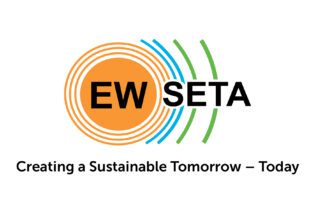For the first time, Southern Africa will have a green toolbox to offer small firms extra rewards for cutting pollution.
The initiative which forms part of a move to establish the region’s first Carbon Register is being showcased to delegates at the COP26 climate summit in Glasgow. “We are on the cusp of opening access to a regional solution for Carbon Markets, which will allow all Southern African SMMEs access to extra rewards for cutting their carbon footprint,” said Marc Tison, Senior Vice President of SEEDX10. SEEDX10 is tapping into an already established global Carbon Market solution through a global partnership, to enable the Southern African Carbon Register to operate seamlessly across the region without any need for additional regulatory approvals. A Carbon Register is a mechanism that rewards businesses and organisations for creating carbon credits – these have a value and, through the Register, are tradeable around the world. The credits are awarded for green projects and initiatives which reduce emissions and can be sold to willing buyers to offset their own carbon footprint. The buyers of carbon credits are large emitters of carbon like Eskom and large corporates, and worldwide demand is expected to spiral as countries scramble to make the carbon savings that are being pledged at COP26, by making the penalties for emissions higher and higher – using mechanisms such as carbon taxes. “This new Carbon Register will enable SMMEs in Southern Africa and its neighbours to trade voluntary carbon credits – both within their own territory, between territories and globally, in compliance with all sections of the Paris Agreement,” said Tison. “The aim is to create a new source of carbon credits from the Southern Africa region as global demand for these shoots up. Without access to a Carbon Register, SMMEs cannot participate in the global Carbon Market. This will unlock a new, exciting, and alternative form of funding for SMMEs to assist them to build and scale their businesses.” With offices already established in the USA, SEEDX10 is launching a Carbon Register for Southern Africa – with a unique offering. “Our global location is key as it provides us with easier access to global capital markets and new trading markets for our clients who have products developed in the region that have global export potential,” explained Tison. “Small firms cannot at present easily benefit financially from their carbon-slashing initiatives. “We offer the chance of aggregating the achievements of a cluster of SMMEs to give them the combined critical mass to enter – and to directly financially benefit – from the carbon trading environment. “Meanwhile, we believe we are launching a unique offering to SMMEs – we will be providing financial incentives to SMMEs who register their green projects through a link-up with Global Impact Holdings (GIH), an established and credible venture-capital provider.” GIH is a fast-growing venture capital player in SA, with a focus on supporting small businesses and making a positive impact on the economy. “A cluster of small firms or a larger operator in Southern Africa could undertake a carbon-cutting programme and sell the benefits of cutting emissions represented by these carbon credits – to another player anywhere in the world that is unable, or finds it too costly, to reduce their own pollution,” explained GIH Executive Chairman Chris Hart. “It sounds complicated, but this ground-breaking Carbon Register is an exciting and innovative way for Southern Africa to develop cleaner and greener firms and factories and to be rewarded handsomely for doing so.“If we can bring together and mobilise on a significant scale – groups of SMMEs that are undertaking carbon-cutting initiatives, they could become significant suppliers of carbon credits to the local and global market and help to achieve the global warming reduction target of 2 degrees set by the Paris Agreement at COP25.
“The carbon savings can be made by creating greener factories, reducing their carbon footprint in the design of the factories and offices they are building.” Attempts to date to establish a voluntary Carbon Register in South Africa have failed to take off, but the new initiative will reduce red tape obstacles. “We have secured an exclusive licence to operate this Carbon Register in Southern Africa – to register and issue carbon credits, based on global issuance standards, to a global carbon exchange,” said Tison. “By fast-tracking this benefit, we can avoid all the regulatory hurdles which will delay anyone who is starting from scratch. “The Carbon Registry business, with internet presence already established at www.sacxr.com, will be incorporated in Botswana, where SADC’s head office is. We will be providing each country with its own secure Carbon Register so each country’s SMMEs can register their businesses and their green projects. Meanwhile, governments will be able to trade carbon credits globally and with one another. “We plan to launch and open the Carbon Register by mid-2022 for the entire region, on the back of a $10m initial private capital raise.” Hart explained that this initiative means that Southern Africa will become the first region in the world to provide financial incentives for small businesses and projects to pursue the benefits of creating carbon credits. “A real issue for SMMEs is to unlock funding, but carbon credits can create funding for SMMEs. The firms can create these credits and get income,” he explained. “GIH intends to co-fund every credit, providing an alternative mechanism for funding – incentivising SMMEs to sign-up. “Internationally, if you can get the SMME market running on this, it will make a significant contribution. “No single country in the world is incentivising – rather than penalising – firms to sign up, but we will facilitate a grant to incentivise them, by bringing in private equity. “The investors will get a stake in the business. This is bolstered by donor funding to provide the capacity for our own business to be able to provide a sign-up incentive for SMMEs.” The South African market is currently starved of carbon credits, and the Carbon Register will play an important part in developing and growing it. “We will be making a presentation at a session at COP26 to present the Southern Africa Carbon Register initiative,” said Tison. “This should propel us forward so we can offer Southern African businesses – both large and small – the chance to become respected players in the green economy while being incentivised and rewarded for their efforts.






